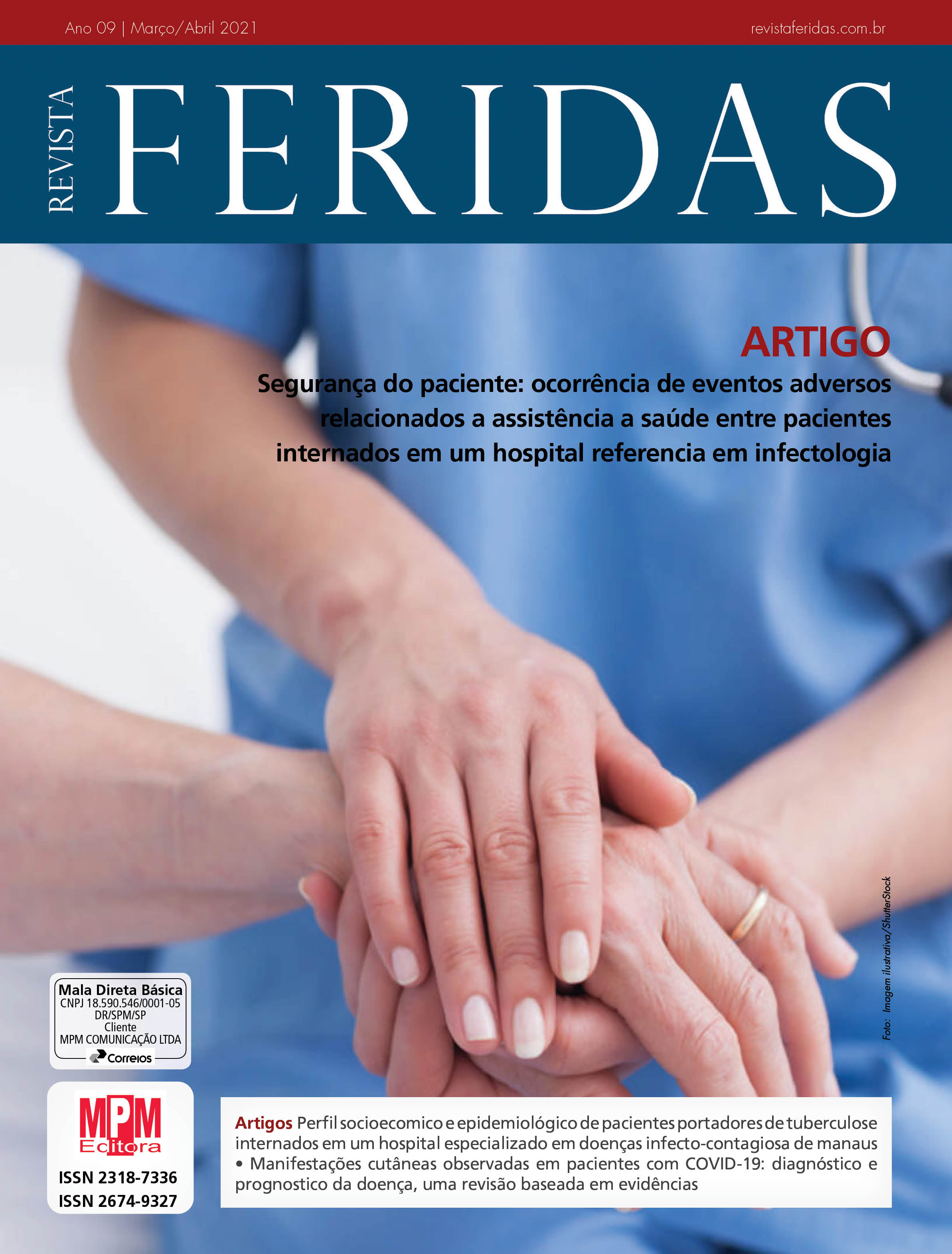Socioeconomic and epidemiological profile of tuberculosis patients admitted to a hospital specializing in infectious and contagious diseases in Manaus
DOI:
https://doi.org/10.36489/feridas.2021v9i47p1719-1724Keywords:
Infectious Diseases, Transitive Diseases, Immunocompromised Host, Health ProfileAbstract
Introduction: Social factors such as poverty, malnutrition, stress, overpopulation and exposure to environmental microbacteria influence susceptibility to tuberculosis. Objective: to describe the socioeconomic and epidemiological profile of tuberculosis patients admitted to a hospital specialized in infectious and contagious diseases. Methodology: This was a prospective study of a descriptive character with a quantitative approach Results: 51 patients with tuberculosis who were hospitalized were interviewed, 90.5% of whom had pulmonary tuberculosis and 9.5% extra-pulmonary, most (61.9%) were male, with an average age of 35 years and 95% lived in the state capital, 61.9% had their own home and 4.7% were homeless, all of whom had HIV. Conclusion: social, economic, in-hospital factors and the presence of comorbidities can directly or indirectly influence the spread of tuberculosis.



